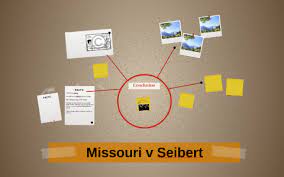The Miranda Warning Case of Missouri v. Seibert
May 01, 2023
This assignment discusses the important 2004 United States Supreme Court case of Missouri v. Seibert. This was a criminal case that focused primarily on whether police officers' use of the "two-step" interrogation technique violated Miranda rights and due process. In this technique, the police first question suspects without giving Miranda warnings, then after obtaining incriminating evidence give the warnings and re-interrogate in order to obtain confessions. The court ruled that this type of questioning does indeed violate the Fifth Amendment's protection against self-incrimination and due process clause (14th Amendment).
In Missouri v. Seibert, a woman named Patty Jo Seibert had been arrested in connection with a burglary investigation by Centralia Police Department detective Richard Scherr. After her arrest, Scherr proceeded to question Seibert for about two hours without informing her of her Miranda rights. He then gave her the customary warnings, resumed questioning and obtained a confession from Seibert.

At trial, Seibert's lawyer argued that the two-step interrogation method violated his client's Fifth Amendment rights because she was not informed of her Miranda rights during the initial questioning. The court agreed with this argument and overturned Seibert's conviction on grounds that the interrogation process constituted an unconstitutional form of coercive interrogation.
The Missouri v. Seibert case established a precedent in which police officers can no longer use such deceptive tactics when interrogating suspects without providing them with their Miranda warnings first. This ruling is important as it protects individuals from being coerced into making incriminating statements. It also serves as a reminder that police officers must always comply with the constitutional rights of suspects and treat them fairly during an interrogation process. In doing so, they ensure that any evidence obtained is done in a lawful manner and will be admissible in court if needed.
